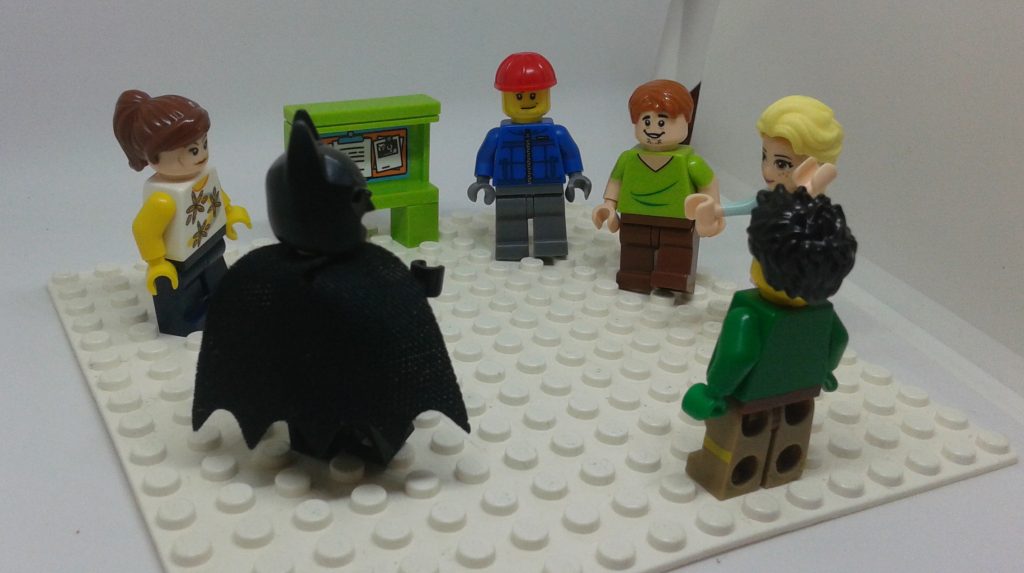
Every morning at work, I participate in a team stand-up meeting. During this fifteen minute meeting, the kanban is displayed and each team member briefly answers these three questions:
- What did I do yesterday (towards sprint goal)?
- What am I doing today (towards sprint goal)?
- What is blocking me (from sprint goal)?
It doesn’t take very long for as many as 20 people to report and we are usually done early. If someone is blocked, a subset of people may remain afterward in order to figure out how to remove the block. But this post isn’t about stand-ups in the tech world rather how my family is also having a daily stand-up.
For many years my family has had a bedtime routine. It has evolved over the years as the children have aged, and a few weeks ago we added a stand-up where everyone reports:
- What did I do today?
- What am I doing tomorrow?
- What is blocking me?
It has taken some time to get the scope correct. For example, breakfast menu typically doesn’t need to be reported and being tired is not a blocking issue. Now we are more likely to hear about accomplishments such as a song being passed off at a music lesson or blocking issues such as a child needing to be somewhere and lacking transport.
I’ve seen benefits from having the family stand-up every evening:
- More accurate calendaring–we have a shared family calendar that displays on the BakBoard and is available on our various electronic devices, but sometimes activities and appointments aren’t added to the calendar. When someone mentions something for the next day that isn’t on the calendar, we get it added.
- Everyone is better informed–there usually isn’t anything that is new to everyone, but often there is something that is new to someone. We now have fewer situations where a subset of the family is ill-informed as to what is happening.
- Offers to help–when someone reports being blocked, other family members often immediately volunteer to help resolve the issue.
- Positive reinforcement–when someone reports a worthy accomplishment, the family promptly provides proper praise.
Even though both my work and my family stand-up meetings follow the same pattern, the implied context of the questions is different. While work stand-ups are focused on the sprint goals, family stand-ups deal a lot more with schedule synchronization and individual well-being. Also, blockages reported in a family scenario are more likely to include details of interpersonal squabbles. This perhaps suggests that the family stand-ups could benefit from defined goals rather than the implicit “make it through the week somehow.”
I am glad that we started having daily family stand-ups–it has made some things easier. I expect that over time the family stand-ups will continue to evolve as we see what is most effective for our needs.